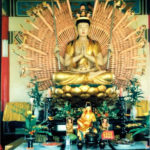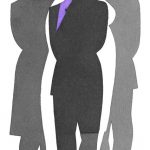Behind the Scene (Edited November 2017)
Amid the publicity, celebrations and media events surrounding the gay festival in Taipei a newspaper story appeared in the Taipei Times by Irene Lin, one of the staff reporters. Her words were informative as she looked behind the festive and optimistic facade of the gay emergence. She expressed thoughtful concerns about the daunting challenges still facing gays as they urge forward in the struggle for dignity and acceptance in a conservative society encumbered with strong heterosexual traditions.
I have used her story along with my own observations and some interviews with native gay men to further probe some of these inhibitions. Where applicable, I have put her words in quotes. I appreciate Lin’s sensitive and supportive report, even if it does not reflect the most cheerful view of gay life. But life is paradoxical, contradictory and complex.
Introduction
Lin began her report with these observations: “Every day, in countries throughout the world, there are violations of the fundamental human rights of gay men, lesbians, bisexuals, and transgender people. In the most serious cases of abuse, gays or lesbians have been killed as a result of their sexual orientation. Other forms of abuse include incarceration, arbitrary arrest and detention. There are times when constitutional guarantees, such as freedom of association, speech, and movement, are exclusively denied to homosexuals. And specific laws, such as those that impose immigration restrictions and the revocation of parental rights, are used to discriminate against them in a number of countries.
“Despite such daunting repression, the gay rights movement has gained momentum in many countries around the world. But the stigma surrounding homosexuality in Taiwan has kept the struggle for equality underground and the fight for rights in its infancy.
Movement without Momentum
Lin continued: “This is not because of any reluctance on the part of Taiwanese to demonstrate. The democratization movement in the late 1980s held almost daily demonstrations. And over the past decade, social movements in Taiwan have made great progress though taking to the streets, especially over such matters as the Fourth Nuclear Power Plant, legal protection of women’s rights and married women’s property, and passage of laws against under-age prostitution. It is common for laborers to be seen fighting for better working conditions by means of street demonstrations.
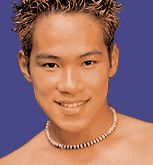 “Yet, while these social movements are in full swing, the gay rights movement still seems invisible in Taiwan. ‘Even though we know that the [gay] movement has as solid a cause as any other, the fundamental problem is that most gays and lesbians do not want to be publicly identified,’ said Wang Ping , secretary-general of the Gender/Sexuality Rights Association.
“Yet, while these social movements are in full swing, the gay rights movement still seems invisible in Taiwan. ‘Even though we know that the [gay] movement has as solid a cause as any other, the fundamental problem is that most gays and lesbians do not want to be publicly identified,’ said Wang Ping , secretary-general of the Gender/Sexuality Rights Association.
” ‘Society as a whole still sees homosexuality as something dirty. And it’s natural for them to be fearful of being identified because they’re afraid of the nasty consequences,’ Wang said. As a society with Confucian roots, Taiwan has had fixed views about what the make-up of a family should be. Even in modern Taiwan, traditional ways of thinking remain rooted in minds of parents and few would be able to accept one of their children being gay or lesbian.
” ‘I’ve gotten calls from gay and lesbian kids who were kicked out of the house when their parents found out about their sexual orientation. A father’s love or a mother’s love is not going to help the situation at that turbulent moment,’ said Jan Jin-yen, host of a radio program on gay issues and chairman of the Taiwan Gay and Lesbian Human Rights Association.
” ‘We know collective action is important for us to achieve many things, but at this moment we need some sort of momentum,’ Jan added.”
The Great Fear–Parents
In another report earlier in 2000 (May 10), a Chinese-descent writer for the Los Angeles Times, Henry Chu, described his conversations with Taiwanese gays and lesbians here about their most daunting challenge. It is one that relatively few seemed to have conquered: coming out to their mothers and fathers. “If you ask a hundred people, ‘Who do you most want not to know you’re gay?’ a hundred people will say, ‘My parents,’ ” said Alexander Chang, one of the director of G&L Publishing, which puts out G&L (Gay & Lesbian) and Glory magazines.
Chu wrote: “Despite Taiwan’s increasing tolerance, conservative notions of sex and family life still prevail among the older generation, setting up a clash between a modern society that embraces diversity and an ancient culture that emphasizes conformity to traditional norms such as carrying on the family name. “Three things demonstrate a lack of filial piety,” goes a famous Confucian proverb. “The biggest one is not producing heirs.
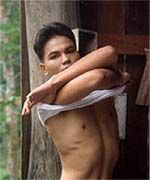 “At 38, Webster Chen feels the full weight of that pressure. His parents are impatient for him to marry a woman and have kids. But he cannot bring himself to be honest with his folks about his sexuality, a hesitation that stems from a very filial sense of duty to shield them from hurt and grief. “I don’t care whether other people know. But I have to think about my parents,” said Chen, who owns one of Taipei’s most popular gay bars, The Source. “My parents would have a hard time accepting that their son is homosexual and would think that it’s somehow their fault.
“At 38, Webster Chen feels the full weight of that pressure. His parents are impatient for him to marry a woman and have kids. But he cannot bring himself to be honest with his folks about his sexuality, a hesitation that stems from a very filial sense of duty to shield them from hurt and grief. “I don’t care whether other people know. But I have to think about my parents,” said Chen, who owns one of Taipei’s most popular gay bars, The Source. “My parents would have a hard time accepting that their son is homosexual and would think that it’s somehow their fault.
Chu continued his report: “He shudders at the horror stories he has heard about parents accusing their children of disobedience or even dragging them to doctors in search of a “cure.” Allen Chen, no relation to Webster, has gotten only as far as telling his mother. He said she hopes he will “become straight after I finish my [mandatory] military service.” Forget about telling his father, she warned. “My mom knows that if my dad knew . . . he might kill me,” said the 23-year-old recent college graduate, who found solace in a campus support group.”
Another Taiwanese-American, Jonathan, reaffirmed to me the grip which traditional Chinese family expectations have on the life and freedom of unmarried offspring. “If a man is not married he is expected to live with his parents and care for them, even if he is forty years old. Sometimes, if he is gay, he will have a cover-up girl friend but there won’t be any sex between them. This is okay because a person is supposed to be a virgin when they get married–mostly the girl.”
Even though having a son still single at forty, reported Jonathan, may be puzzle for the parents, it is unlikely to occur to them that he might be gay. More often they will not attribute it to something about his personality, but more to circumstances such as his educational or professional responsibilities.
But this does not diminish the expectations on him and the eventual outcome varies considerably, from succumbing to marriage (with anonymous secret sex on the side) to immigrating to another country and shielding a lover from parental view. So powerful is this fear of shame and discovery, according to Jonathan, that he suggested I not invite a gay Taiwanese man to talk with me in a restaurant; “better to talk in the park so no one can overhear you.”
Historical Homosexual Legends
Reporter Chu described some of China’s ancient legends about homosexuality. “It would be wrong to characterize Chinese culture as unremittingly hostile to homosexuality through the ages. Emperors are often recorded as having male consorts, including the tenderhearted Emperor Ai of the Han Dynasty, who legend says cut off the sleeve of his robe rather than stir his male companion, who had fallen asleep across it. Homosexuality is still occasionally referred to in Chinese as “the passion of the cut sleeve.”
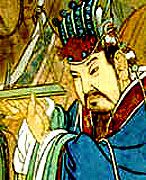 “China’s greatest literary classic, “The Dream of the Red Chamber,” written during the 18th century, chronicles numerous sexual escapades between partners of both the same and opposite sexes. During the 19th century, homosexuality was common enough in China for a disapproving British emissary to note that “many of the first officers of the state seemed to make no hesitation in publicly avowing it.”
“China’s greatest literary classic, “The Dream of the Red Chamber,” written during the 18th century, chronicles numerous sexual escapades between partners of both the same and opposite sexes. During the 19th century, homosexuality was common enough in China for a disapproving British emissary to note that “many of the first officers of the state seemed to make no hesitation in publicly avowing it.”
“And at the dawn of the 20th century, one of China’s most revered scholar-reformers of the modern era, Kang Youwei, proposed the idea of marriage contracts that could be entered into by two people of the same or opposite sex.
“It is this liberal vein of Chinese history that Taiwan’s gays and lesbians hope to mine in their push for greater visibility and the same rights as heterosexuals. “I don’t want gays just to stay in bars or saunas,” said Webster Chen. I want them to be able to walk down the street holding hands.”
Despite daunting present day personal fears of exposure for Taiwan’s lesbigays, Chu concluded his report with an upbeat notion about the future. This is appropriate especially in light of the steady yet quiet progress of lesbigays in coming out both with personal confessions to close friends and in plans for public street festivals. “For many gays and lesbians in Taiwan, however, victories are still counted on a more modest scale. Ginger Lin finally mustered up the courage to come out to her two sisters, both of who, to her shock, also turned out to be lesbians. Now she has a girlfriend of two years, and they occasionally discuss marriage. “In just five years, it’s changed a lot. Talking about [homosexuality] doesn’t earn you strange looks, and maybe one day there won’t be discrimination,” said Lin, 28. She shrugged her shoulders. “This is the way I am. What is there to accept?”
Lawless
Lesbian Ginger Lin is far from alone when she and her lover consider marriage, legal or not. Long ago in 1996 amid media fanfare a precedent-setting wedding was held in Taipei between a gay Taiwan writer/activist, Shu Yu Shen, and his American partner. Surprisingly, the wedding proceeded successfully, free from harassment by law enforcers or opponents of homosexuality. On the face of it, it seemed that the government had recognized the marriage and that the couple was given rights and benefits equal to those of heterosexual married couples.
However, as reporter Irene Lin observed in her Taipei Times story: “while the couple went through the wedding ceremony, unlike the vast majority of married heterosexual couples, they did not register their marriage with the government’s census institutions. It was obvious the government would not recognize the marriage and grant the partners the same rights and benefits.
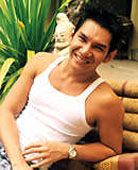 ” ‘No one ever tried to challenge the laws which did still do not recognize such a thing as homosexual marriages,’ said Kenneth Chiu, a human rights lawyer. Chiu pointed out that it is hard to say what legal rights homosexuals have, since the law makes no recognition of their existence.
” ‘No one ever tried to challenge the laws which did still do not recognize such a thing as homosexual marriages,’ said Kenneth Chiu, a human rights lawyer. Chiu pointed out that it is hard to say what legal rights homosexuals have, since the law makes no recognition of their existence.
” ‘You can’t really say there’s any discrimination because the identity of gays and lesbians does not even exist in the laws of the country,’ Chiu said. Indeed, the laws of Taiwan do not expressly recognize rights for non-heterosexuals. To cite a recent example, a draft bill on equal working opportunities and rights addresses the possibility of discrimination based on gender, making no mention of discrimination based on sexual orientation.
Reporter Lin went on to describe: “Yet while homosexuality is absent from other laws, at least the sexual activities of homosexuals are being recognized in laws related to rape and adultery. Until recent amendments, rape referred to sexual intercourse without consent between members of opposite sexes. However, the law was amended last year to include same-sex intercourse without consent as a type of rape.
“And while the current law regarding adultery states that adultery is voluntary sexual activity by a married person with someone other than his or her spouse, some lawmakers are seeking to have the law recognize that this could include sexual activity with a person of the same sex. ‘We know that recognition is beginning, but it’s just not the kind we’re looking for,’ Wang said.
Finally , in 2017 the Constitutional Court ruled that current marriage laws are unconstitutional and that same-sex couples should have the right to marry.
The Fight Will Go On
Lin continued: “Unlike a number of countries where homosexual activity is strictly prohibited, Taiwan has no sodomy laws to penalize homosexuality. Neither, however, does it offer protection from discrimination based on sexual orientation as do countries including Australia, Israel, and South Africa. At this moment, the liberation movement for gay and lesbian still seems to lack momentum and a direction.
” ‘It’s understandable. I think at this moment, a search for support in their personal lives is an even more immediate concern for gays and lesbians in Taiwan,’ Wang Ping said. ‘As long as finding a partner remains difficult for most people, we can hardly expect them to think of the higher goal of fighting for rights.’ ”
“In June of 2000, activist and talk-show host Jan Jin-yen formed the Taiwan Gay and Lesbian Human Rights Association, marking the first gay rights organization with official registration. Jan said he has felt a need for gay and lesbians groups to become better organized and systematic in their efforts so that they can provide even more help to those gays and lesbians in need.”
Further aiding the gay lib cause, in addition to the freedom bestowed by democracy, is the virtual absence of violent gay bashing. As mentioned in part one of these two stories on gay Taiwan, this absence is not because of any official protections. The three most evident reasons for this absence are the relative invisibility of the gay community, a general ignorance about homosexuality and the lack of strong religious bigotry.
The Unavoidable: HIV
Unmentioned in any these upbeat or worried news reports about recent gay activity in Taiwan is the scourge of HIV. In a country where sexual matters are private and where homosexuality is still taboo, HIV and AIDS are further hidden in the back of the social closet.
A little noticed but very public sign appears inside the departure lounge at Chang Kaishek Airport in Taipei, somewhere between the ads for Lancome perfume and Patek-Phillipe watches. Three figures, representing a mother-father-child, are framed by a heart-shaped symbol that is pierced with the letters “AIDS” in bold print under the family.
 The sign offers the name and phone number of an organization that provides help. I thought the sign would be better placed in the arrival hall, at passport control where entering passengers had to pause and think for a moment about their next intimate choice. It would also seem a more forceful statement of Taiwan’s concern over a disease that has infected or killed well over a thousand people in this island republic.
The sign offers the name and phone number of an organization that provides help. I thought the sign would be better placed in the arrival hall, at passport control where entering passengers had to pause and think for a moment about their next intimate choice. It would also seem a more forceful statement of Taiwan’s concern over a disease that has infected or killed well over a thousand people in this island republic.
Unlike America the large majority of the officially recorded cases are heterosexual, hence the family logo. After talking to some of the gay men here and understanding the ignorance (and denial) about sex and AIDS that instills Taiwan, I think it is doubtful that the campaign against AIDS would be publicly visible at the international airport if the current HIV cases were mostly homosexual.
None of the several men I talked to knew anyone infected with HIV. However it was one man’s opinion that any man infected with the virus would insist that he had only been with women, a very convenient and statistically valid answer that would not be questioned. But, on reflection, he also thought that if a victim were gay that he would still be treated with care and respect, but he had no proof one way or the other.
Thomas and Martin: In the Eye of HIV
However, the HIV story changed when I met Thomas, a native Taiwanese gay man. He was very polite, soft spoken with a calm voice and gracious manner. Neatly dressed in dark pants and starched white shirt, he came across as modest and unassuming–and generous. He was willing to come forty-five minutes out of his way to talk to me one pleasant after-work evening in October.
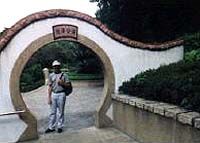 He appeared the successful prototype of a modern young Taiwanese man: western education, masters degree, good job with a internationally affiliated corporation, sufficient salary, coat and tie, living in the suburbs with a boyfriend and using e-mail to contact others around the world. For two hours we lingered together over noodles and vegetable soup in a little Japanese restaurant near New Park. He was agreeable to answering my questions about his life; the story was both familiar and surprising.
He appeared the successful prototype of a modern young Taiwanese man: western education, masters degree, good job with a internationally affiliated corporation, sufficient salary, coat and tie, living in the suburbs with a boyfriend and using e-mail to contact others around the world. For two hours we lingered together over noodles and vegetable soup in a little Japanese restaurant near New Park. He was agreeable to answering my questions about his life; the story was both familiar and surprising.
Familiar in the sense of his living with traditional Chinese attitudes toward homosexuality. He lived with circumspect love and stolen moments of intimacy so as not to expose his true feelings for his lover of three years, Martin.
Thomas described his situation: “despite the recent relaxed attitude here (toward homosexuality) and the gay bars and clubs–and now G&L magazine–Martin and I are not open.” He told about the divide between late-night flashy dancing and talking to his mother about being in love with another man. “She doesn’t know anything.”
But as the conversation continued this familiar theme gave way to deeper and much more poignant reality in the life and love of this gentle man. Although he lives with Martin, they share a home with Martin’s family, and Martin is ailing with AIDS, which prevents him from working regularly.
Adding to this tightrope is that Martin’s parents and brother do not know (there has been no discussion) that they are lovers nor do they realize the truth about Martin’s illness.
Further, he said, “Martin doesn’t trust the government health system to protect his anonymity if he went for treatment, so he doesn’t take medication.” More practically, he shuns the medications because of the strong side effects. “He’s always been a sickly person with poor strength, so he’s convinced he would feel worse on powerful medicine.”.
Their situation could have sounded comically absurd if it weren’t so deadly. Living within a breath of his family and yet absented from the compassion he might (or might not?) receive from family members as he faces this threatening illness. The family think his weakness is just another in his history of ailments and health problems. Deception masking more deception.
Thomas thus lives in a web of duplicity, disease (he is HIV-) and fear of exposure. If he and Martin were found out, it would surely require his leaving the house. So, Thomas willingly lives bound by his compassionate commitment to Martin, not to mention Martin’s need for financial support. Only Martin’s brother and Thomas work and earn income for the family since the parents are retired.
In a touching epilogue to our conversation, Thomas described how “one evening, Martin and I went to a church by ourselves and married each other; we had our own private exchange of vows. It was very sweet.” Thomas is sure he will not betray these vows despite the constraints and complications in their bond. Indeed, their vows were not broken.
A sad epilogue to this love story: Martin died 18 months later in the quiet of the night, in Thomas’ arms.
Another Strain on Gay Love: Dating Foreigners
Richard, a gay Taiwanese-American now living with his Irish-American lover in southern California, reported how he was strongly urged, at 32, into marrying a woman while he was still living with his family in Taipei.
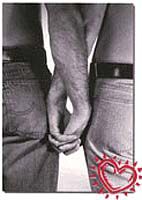 Two years after we were married we came to America and I divorced her. Now she lives back in Taiwan. But my parents won’t tell anyone that we are divorced. They would feel ashamed to their friends. Even when I visit them, I stay away from the neighbors so they don’t ask me about my wife.”
Two years after we were married we came to America and I divorced her. Now she lives back in Taiwan. But my parents won’t tell anyone that we are divorced. They would feel ashamed to their friends. Even when I visit them, I stay away from the neighbors so they don’t ask me about my wife.”
Of course, the parents don’t know Richard’s real reason behind his reluctance to marry in the first place. “I would never tell them. Never.” So deeply hidden is homosexual attraction in his culture that he blurted out, “I would die first before I told them–not really, but that’s how strong it feels.”
Prior to his wedding, Richard had a foreign boyfriend whom he dated for a year and a half. It was mostly a weekend affair with Richard going to his lover’s place but never an overnight stay unless Richard’s parents were away and would not know he was out all night.
For Richard, dating westerners helped as well as hindered the situation. Unlike Bangkok, Hong Kong or Phnom Penh which have a distinct western gay stratum that lives and socializes somewhat insulated by affluence and culture from the local gay populace, Taipei’s western expats tend to live more integrated with the island’s increasingly prospering residents. Richard found them easy to meet.
For their part, being away from their homelands, gay foreigners are less inhibited by families and social standards. Some are fully out and proud and fear no one. Conveniently, they often have their own apartment thus eliminating the need to account to anyone for private time. This was the situation which allowed Richard to start his first relationship with a German who was assigned to work in Taiwan.
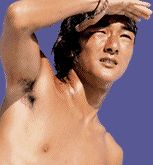 On the other hand, a lot of these workers are only in Taipei for a limited time, so the relationship can be destabilized and temporary. Reactions to this tenuous condition range from relief at the convenience to sorrow and jealousy at the impending loss. Richard described hearing about one Taiwanese man who felt driven to suicide in the face of a broken relationship. But more often “you can see there is anger that comes from jealousy–Chinese have fierce emotions!”, he declared with a laugh and a glance toward his Irish lover.
On the other hand, a lot of these workers are only in Taipei for a limited time, so the relationship can be destabilized and temporary. Reactions to this tenuous condition range from relief at the convenience to sorrow and jealousy at the impending loss. Richard described hearing about one Taiwanese man who felt driven to suicide in the face of a broken relationship. But more often “you can see there is anger that comes from jealousy–Chinese have fierce emotions!”, he declared with a laugh and a glance toward his Irish lover.
Frustrating as these arrangements may be for the heart, in some cases they suit the enclosed lifestyle of the fearful native who cannot afford to fall too far in love with a shining knight as long as he lives in his native Taiwan. But this is not to paint a bleak picture of every mixed couple as doomed to a short half-life of hide-and-seek romance.
Some Taiwanese are free of their families’ influence, either by death, distance or determination as Taiwan shifts and changes to include new ideas of business, new modes of culture and, most recently, new forms of love. The future, with or without China, is fortunately open and mutable in this unique nation.
Also see:
Gay Taiwan Stories
Gay Taiwan News & Reports 2000 to present
Gay Taiwan Photo Gallery

